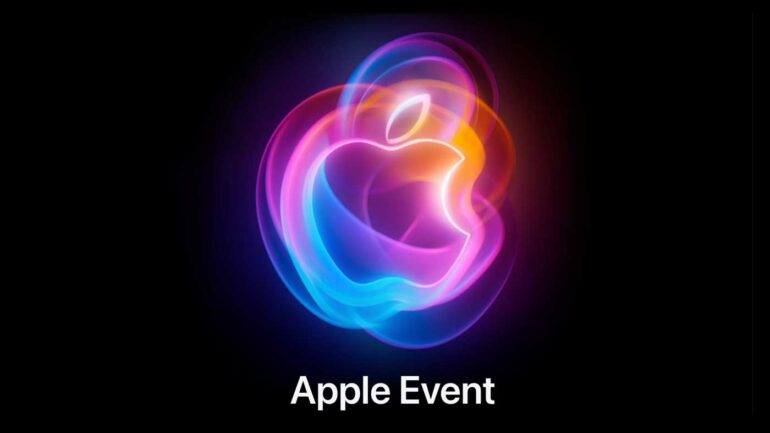Too Busy? Try These Tricks To Streamline Your What Was 5 Months Ago Fr…
Antibody activity was high throughout groups at day 209, however assessment with a "stay virus" neutralization test found geometric imply titers declined more over time in participants ages 56 and older compared with adults ages 18 months ago-55, reported Mehul Suthar, PhD, of Emory University School of Medicine in Decatur, Georgia, and colleagues in a correspondence piece in the brand new England Journal of Medicine. The researchers estimated a half-life of binding antibodies of fifty two days after day 43 for all participants utilizing a model assuming a gradual decay charge over time, and the neutralizing antibody half-life was 202 days for live-virus neutralization using a mannequin that assumed decay rates lower over time. Suthar and colleagues famous that "the antibody titers and assays that finest correlate with vaccine efficacy aren't presently identified," and ongoing studies continue to monitor immune response past 6 months, in addition to study the impression of a potential booster dose towards COVID-19 variants.
 The updated EUAs were based partially on immune response knowledge from clinical research in adults and children who obtained earlier BA.1-concentrating on bivalent vaccines or extra vaccinations with the businesses' monovalent pictures. They added that 80% of deaths had been among adults ages 60 and up. Antibodies persisted 6 months after the second dose of Moderna's COVID-19 vaccine in youthful and middle-age adults, but have been diminished in older adults when using extra sensitive assays, in keeping with information from an ongoing section I trial. Moderna's bivalent vaccine is now authorized as a booster dose for teenagers ages 6 months to 5 years, not less than 2 months following the 2-dose primary series. Over the subsequent two years, he noticed enough - firings over seemingly small infractions, he says, and capricious and unresponsive management - to alter his thoughts. Under an up to date emergency use authorization (EUA), Pfizer's up to date vaccine is now authorized as the third dose of the first collection for teenagers ages 6 months to four years, following two doses of the monovalent vaccine.
The updated EUAs were based partially on immune response knowledge from clinical research in adults and children who obtained earlier BA.1-concentrating on bivalent vaccines or extra vaccinations with the businesses' monovalent pictures. They added that 80% of deaths had been among adults ages 60 and up. Antibodies persisted 6 months after the second dose of Moderna's COVID-19 vaccine in youthful and middle-age adults, but have been diminished in older adults when using extra sensitive assays, in keeping with information from an ongoing section I trial. Moderna's bivalent vaccine is now authorized as a booster dose for teenagers ages 6 months to 5 years, not less than 2 months following the 2-dose primary series. Over the subsequent two years, he noticed enough - firings over seemingly small infractions, he says, and capricious and unresponsive management - to alter his thoughts. Under an up to date emergency use authorization (EUA), Pfizer's up to date vaccine is now authorized as the third dose of the first collection for teenagers ages 6 months to four years, following two doses of the monovalent vaccine.
You shouldn’t have an excessive amount of planning to do when it comes to those events, but you want to make sure they’re scheduled a month or two earlier than your marriage ceremony so you’re not distracted by last-minute stress. While privateness remains a core focus of Mozilla and others, we need to search out methods to protect and empower users that additionally include the gathering and use of data to present folks experiences they need. Bivalent COVID-19 vaccines from Pfizer and Moderna are actually authorized for use in youngsters as young as 6 months previous, the FDA introduced on Thursday. On Friday, the CDC endorsed the expanded authorizations, noting that "the vast majority of kids on this age group have not received any doses of a COVID-19 vaccine." The company added that it is working to increase parent and provider confidence within the vaccines. In its announcement, the FDA famous that children ages 6 months to 4 years who have accomplished their main sequence with the three monovalent doses of Pfizer's vaccine "would still be expected to have safety against probably the most serious outcomes from the at the moment circulating Omicron variant," and that information to assist a bivalent booster dose on this inhabitants are anticipated early next yr.
 For outcomes that tend to recur (including ischemic strokes and psychiatric diagnoses), they estimated separately the incidence of first analysis and the incidence of any diagnosis (i.e., including patients who had a diagnosis in some unspecified time in the future earlier than the index event). For outcomes that have been chronic illnesses like dementia or Parkinson's disease, the research team excluded patients who had a analysis earlier than the index occasion. Nearly one-third (30%) had hypertensive disease, 9% had ischemic coronary heart disease, 18% had other types of coronary heart illness, 18% had been overweight or obese, 16% had type 2 diabetes, 10% had asthma, 7% had chronic kidney disease, and 19% had neoplasms. One-third of COVID-19 survivors obtained a neurologic or psychiatric analysis inside 6 months of being contaminated with SARS-CoV-2, an evaluation of 236,000 electronic well being records showed. The evaluation was based mostly on electronic well being information of 236,379 COVID-19 patients over age 10 in the TriNetX community, largely people in the U.S. Completeness and accuracy of digital well being information were unknown. Severity and course of neurologic and psychiatric disorders had been additionally unknown. While psychiatric diagnoses like anxiety and depression have been widespread after COVID-19, "these were not strongly related to the severity of the illness," he noted. Estimated incidences in the whole COVID-19 cohort have been 0.56% for intracranial hemorrhage, 2.10% for ischemic stroke, 0.11% for parkinsonism, 0.67% for dementia, 17.39% for anxiety disorder, and 1.40% for psychotic disorder, amongst others.
For outcomes that tend to recur (including ischemic strokes and psychiatric diagnoses), they estimated separately the incidence of first analysis and the incidence of any diagnosis (i.e., including patients who had a diagnosis in some unspecified time in the future earlier than the index event). For outcomes that have been chronic illnesses like dementia or Parkinson's disease, the research team excluded patients who had a analysis earlier than the index occasion. Nearly one-third (30%) had hypertensive disease, 9% had ischemic coronary heart disease, 18% had other types of coronary heart illness, 18% had been overweight or obese, 16% had type 2 diabetes, 10% had asthma, 7% had chronic kidney disease, and 19% had neoplasms. One-third of COVID-19 survivors obtained a neurologic or psychiatric analysis inside 6 months of being contaminated with SARS-CoV-2, an evaluation of 236,000 electronic well being records showed. The evaluation was based mostly on electronic well being information of 236,379 COVID-19 patients over age 10 in the TriNetX community, largely people in the U.S. Completeness and accuracy of digital well being information were unknown. Severity and course of neurologic and psychiatric disorders had been additionally unknown. While psychiatric diagnoses like anxiety and depression have been widespread after COVID-19, "these were not strongly related to the severity of the illness," he noted. Estimated incidences in the whole COVID-19 cohort have been 0.56% for intracranial hemorrhage, 2.10% for ischemic stroke, 0.11% for parkinsonism, 0.67% for dementia, 17.39% for anxiety disorder, and 1.40% for psychotic disorder, amongst others.
In the event you beloved this post and you wish to be given more info regarding 5 months ago from today generously visit our site.
